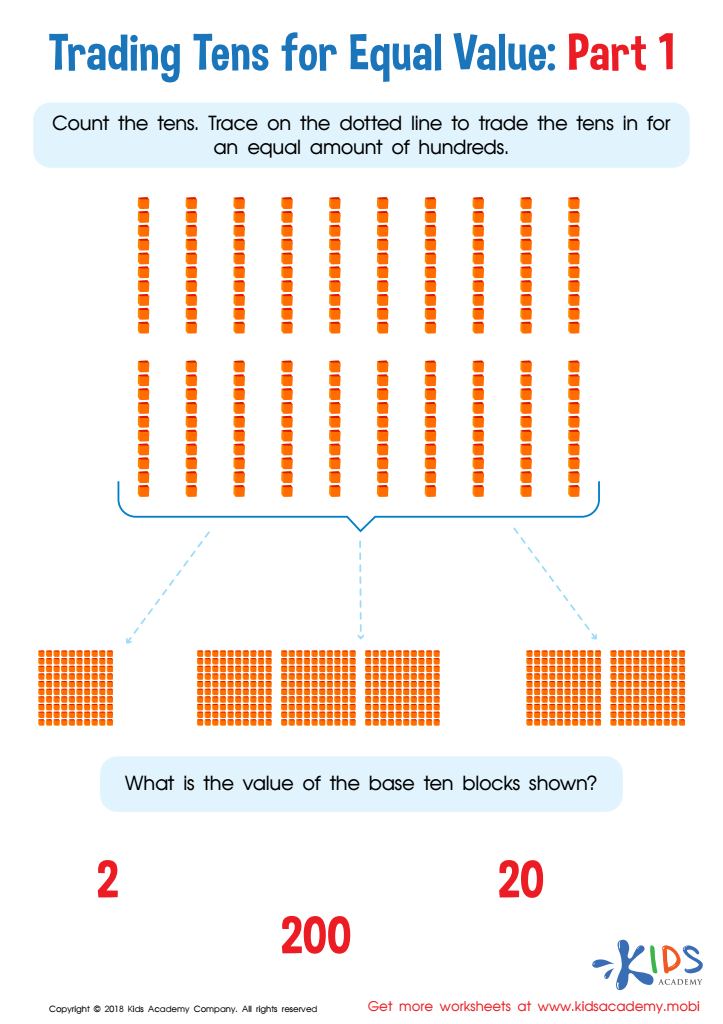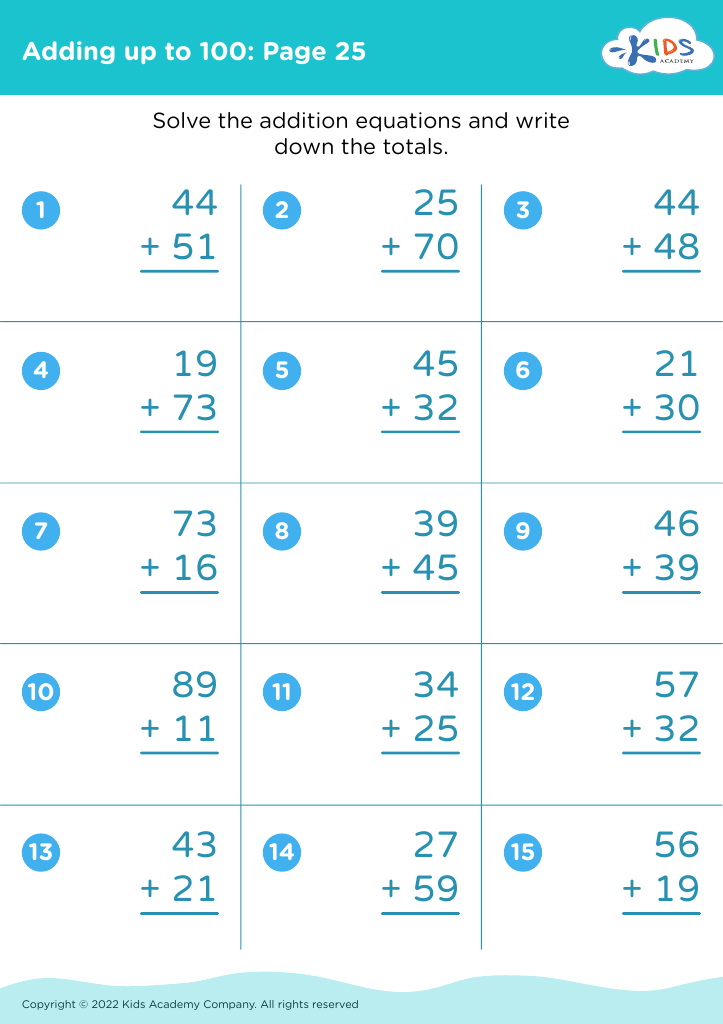Learning addition Worksheets for Ages 8-9
3 filtered results
-
From - To
Our "Learning Addition Worksheets for Ages 8-9" are designed to enhance math skills in a fun and engaging way. These worksheets provide children with various challenges, from simple single-digit addition to more complex multi-digit problems. Each activity is crafted to align with educational standards and helps build strong foundational skills for future math success. By incorporating fun themes and interactive exercises, children remain motivated while gaining confidence in their abilities. Ideal for both classroom and at-home learning, these worksheets are a fantastic resource for teachers and parents striving to give their young learners a head start in mathematics.


Trading Tens for Equal Value Worksheet: Part 1
Learning addition is a crucial skill for children aged 8-9, acting as the foundation for broader mathematical understanding and daily life applications. At this age, addition supports cognitive development by enhancing problem-solving abilities and logical thinking. It is one of the building blocks for mastering more complex mathematical concepts such as subtraction, multiplication, and division.
For parents and teachers, ensuring children grasp addition is essential because it contributes significantly to their academic success. Mathematical proficiency often translates to better performance in other STEM (Science, Technology, Engineering, and Mathematics) subjects. This early mastery fosters a positive attitude towards math and diminishes math-related anxiety, which can lead to higher self-confidence and a greater willingness to engage in mathematics as they progress through school.
Moreover, addition skills have practical, everyday uses. Children apply them in various real-life situations like shopping, cooking, and playing games, which helps them to comprehend and manage numerical information beyond the classroom. This relevance strengthens their comprehension and retention of the concept.
Ensuring that children are comfortable with addition also helps develop important life skills such as attention to detail, analytical thinking, and perseverance. Parents and teachers who focus on this critical phase of learning are setting the stage for the child’s long-term academic and personal success, making it a vital area of focus.

 Assign to the classroom
Assign to the classroom














